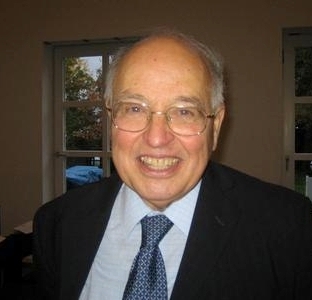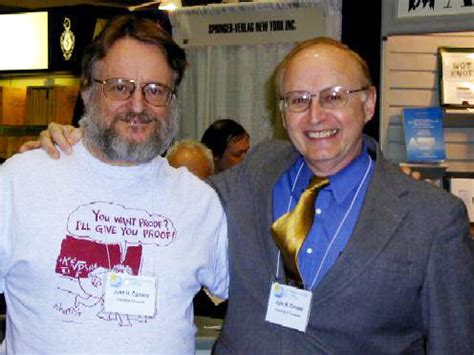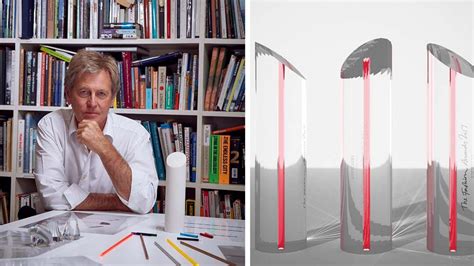A Quote by Michael Atiyah
Everything useful in mathematics has been devised for a purpose. Even if you don't know it, the guy who did it first, he knew what he was doing. Banach didn't just develop Banach spaces for the sake of it. He wanted to put many spaces under one heading. Without knowing the examples, the whole thing is pointless.
Related Quotes
What interested me the most was that when I [traveled to Europe] I knew what Joseph Beuys was doing, he knew what I was doing, and we both, we just started to talk. How did I know what Daniel Buren was doing, and to an extent, he knew exactly what I was doing? How did everybody know? It's an interesting thing. I'm still fascinated by it because, why is it now, with the Internet and everything else, you get whole groups of artists who have chosen to be regional? They really are only with the people they went to school with.
I don't think that everyone should become a mathematician, but I do believe that many students don't give mathematics a real chance. I did poorly in math for a couple of years in middle school; I was just not interested in thinking about it. I can see that without being excited mathematics can look pointless and cold. The beauty of mathematics only shows itself to more patient followers.
Architecture is inherently a totalitarian activity. One thing we hate about it is that when you design a space, you're probably designing people's behavior in that space. I don't know if we know how to change that, but our goal is to make spaces for people rather than people being subservient to spaces.
Web publishing can create common spaces; it all depends on how we, the readers and sometimes the producers, react to technological change. If we sort ourselves into narrow groups, common spaces will be in big trouble. But there's no reason not to have common spaces on the Internet. There are lots of them out there.
When you get many opportunities early on, and you have people who have been working for a while counting on you, you have to at least pretend that you know what you're doing. So any actor that's pretending, you start to develop philosophies. Without years and years of experience, you kind of go with an attitude that you know what you're doing. And so I think right around that time, I was kind of at the peak of rigidly thinking that I knew how to work in film in a way that I wanted to. Cameron was extremely patient and generous with me.
I don't think colleges are safe spaces. It's one thing to have a fraternity house or a community center where students can go and talk about their shared experiences. But it's another thing to have safe spaces in the sense that the university's providing them with protection from what they have to experience and find ways of protesting and resisting.







































